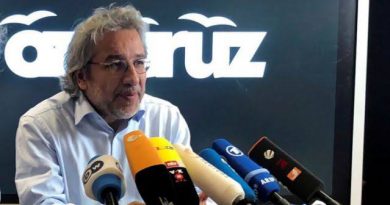Turkish Citizenship Denied: Imam Ghoneim’s anger unleashes clashes within Muslim Brotherhood
Imam Ghoneim lamented being treated as a disposable entity despite his past services to the Muslim Brotherhood, including incitement and mobilization of Muslims against Saudi Arabia.
Infamous Egyptian Muslim Brotherhood Imam, Wagdy Ghoneim, has recently voiced his frustration and disappointment towards fellow Brotherhood leaders for not inviting him to a crucial meeting that brought them together with President Erdogan of Turkey. Ghoneim has gone a step further and accused them of neglecting to request Turkish citizenship or renew his residency, despite his significant contributions to the organization.
Imam Ghoneim, known for his fiery speeches and unwavering support for the Muslim Brotherhood, expressed his discontent in a statement that resonated with disappointment.
Imam Ghoneim lamented being treated as a disposable entity despite his past services to the Muslim Brotherhood, including incitement and mobilization of Muslims against Saudi Arabia. Ghoneim drew a striking parallel, likening his exclusion to the behavior of mercenaries who discard individuals once their usefulness has expired.
The meeting between the Muslim Brotherhood leaders and President Erdogan has captivated attention as it underscores the ongoing alliance between the organization and the Turkish government. President Erdogan’s administration, renowned for its support of Islamist movements, has been a vocal advocate for the Muslim Brotherhood, providing refuge to its members and granting them a platform to advance their agenda.
Imam Ghoneim is an Egyptian imam and writer known for his extremist views and controversial statements. He has faced bans and restrictions in several countries, including the US, UK, Canada, Switzerland, and Tunisia, due to concerns about his support for terrorist organizations and incitement of violence. Ghoneim has expressed extremist beliefs, including justifying attacks on Coptic churches and endorsing amputation as a punishment for theft. His divisive ideologies and statements continue to generate widespread criticism and controversy.
His exclusion from the significant meeting raises questions about internal dynamics and power struggles within Muslim Brotherhood. Speculation has arisen, suggesting that Ghoneim’s omission may be due to disagreements or conflicts of interest among Brotherhood leaders.
The outcome of this internal dispute remains uncertain and may have implications for the future trajectory of the Muslim Brotherhood and its relationship with President Erdogan’s government.



